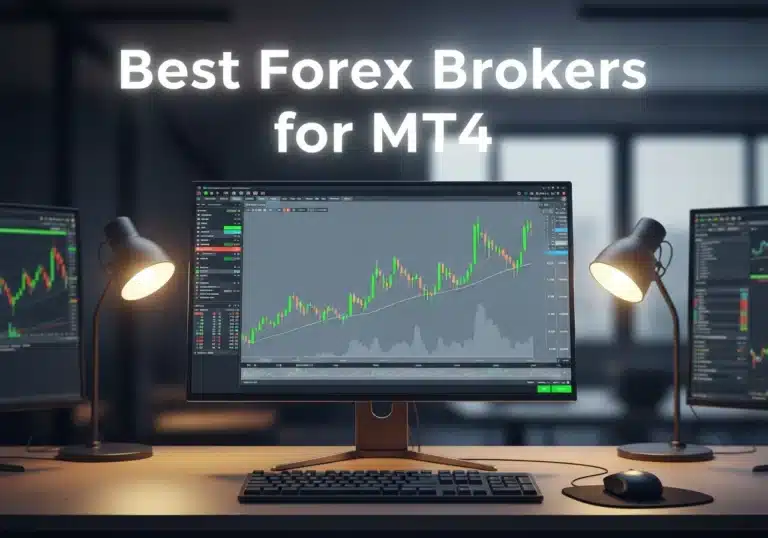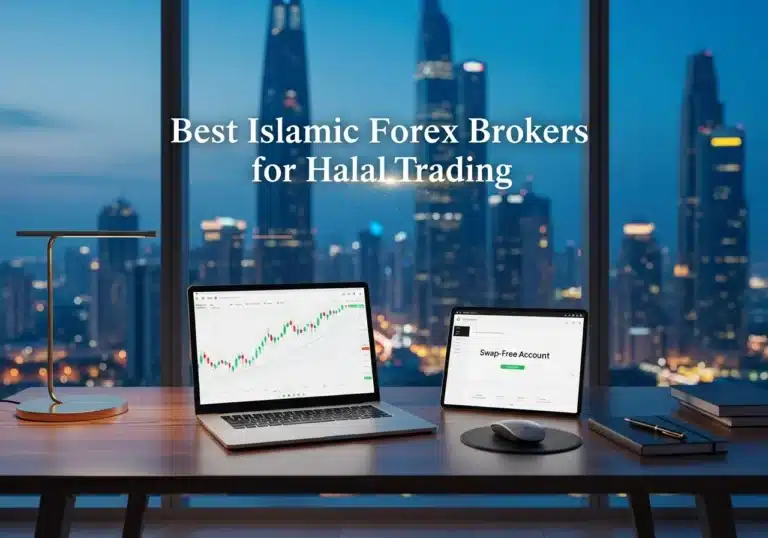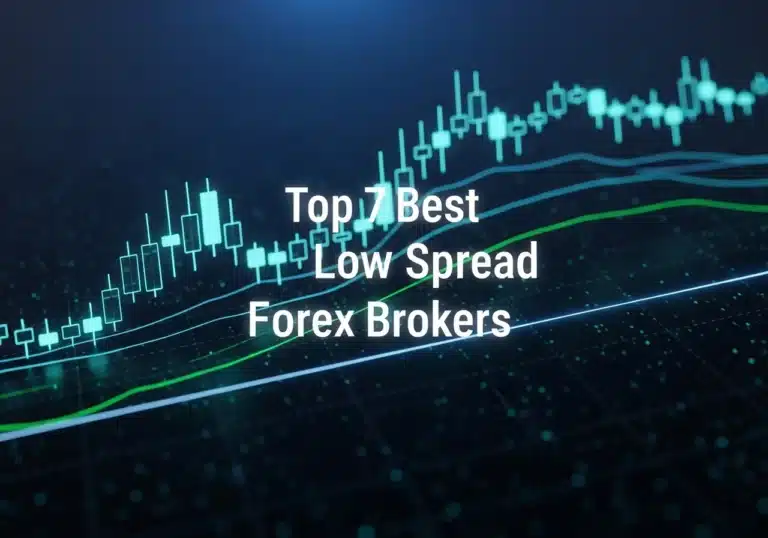Are you torn between diving into the dynamic world of forex or investing in the steady realm of stocks? The decision between forex vs stocks trading is a pivotal one for any aspiring trader, setting the course for your financial journey. In this comprehensive guide, we will explore the critical differences, advantages, and strategies associated with each market. Whether you’re considering partnering with a regulated forex broker or seeking the stability of stock investments, understanding these two financial arenas will empower you to make informed, profitable decisions.
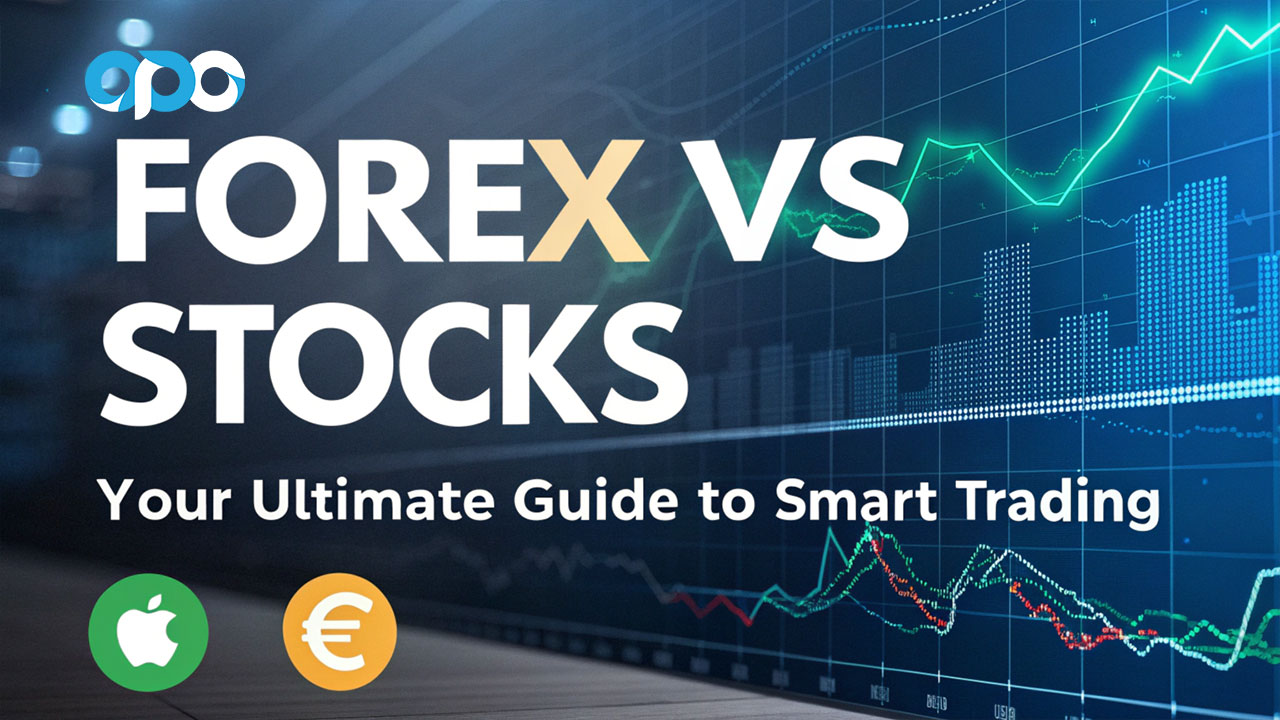
Imagine tapping into a market that operates 24/5 with unparalleled liquidity, or owning a piece of a company poised for growth. This article delves deep into the forex vs stocks debate, providing you with essential insights, real-world data, and actionable strategies. By the end, you’ll have a clear understanding of which market aligns best with your trading style, risk tolerance, and financial goals. Let’s embark on this journey to uncover the strengths and nuances of forex and stock trading, ensuring you choose the path that leads to sustained success.
Key Differences Explained
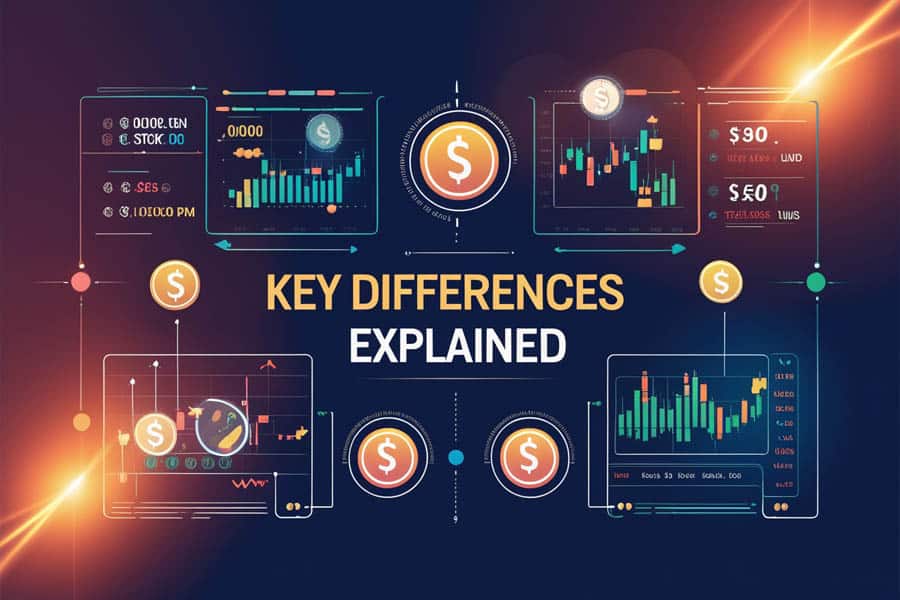
Understanding the fundamental distinctions between forex and stock trading is crucial for making an informed choice. Both markets offer unique opportunities and challenges, influenced by different factors and suited to varying trading styles.
The true power lies in selecting the market that aligns with your trading style, risk tolerance, and long-term ambitions.
Nature of the Asset
- Forex Trading: Involves the exchange of currency pairs, such as EUR/USD or GBP/JPY. When you engage in forex trading, you are simultaneously buying one currency and selling another. This dual nature means that your profits or losses are determined by the relative strength of one currency against another. The forex market is highly influenced by global economic indicators, geopolitical events, and central bank policies, making it a dynamic and fast-paced environment.
- Stock Trading: Entails buying shares of publicly listed companies. Owning stocks means you have a stake in the company’s performance and potential growth. Stock prices are influenced by company-specific factors like earnings reports, management decisions, product launches, and broader economic indicators. Investing in stocks can provide both capital appreciation and dividends, offering a tangible connection to the companies you invest in.
Trading Environment
- Forex Market: Operates 24 hours a day, five days a week, across major financial centers in Asia, Europe, and North America. This round-the-clock access allows traders to respond to news and events in real-time, providing flexibility for those who prefer trading at unconventional hours or who want to capitalize on global market movements.
- Stock Market: Typically adheres to specific trading hours depending on the exchange. For example, the New York Stock Exchange operates from 9:30 AM to 4:00 PM Eastern Time. While after-hours trading is available, it often comes with lower liquidity and higher volatility, which can present both opportunities and risks.
Influencing Factors
- Forex: Heavily influenced by macroeconomic factors such as interest rates, inflation, GDP growth, and geopolitical stability. Central bank decisions and international trade policies can cause significant fluctuations in currency values, providing ample opportunities for traders to capitalize on these movements.
- Stocks: Affected by both macroeconomic factors and company-specific news. Earnings reports, product innovations, mergers and acquisitions, and changes in executive leadership can drive stock prices. Additionally, market sentiment and investor behavior play a substantial role in stock price movements.
Market Size & Liquidity
- Forex Market: The largest financial market globally, with a daily trading volume exceeding $6 trillion. This immense liquidity ensures that large trades can be executed with minimal price slippage, making it an attractive option for high-frequency traders and those seeking tight spreads.
- Stock Market: While individual stock liquidity varies, major stocks like Apple, Amazon, and Microsoft boast high trading volumes, ensuring ease of entry and exit. However, smaller-cap stocks may suffer from lower liquidity, leading to wider bid-ask spreads and potential execution challenges.
Read More: Forex vs Options
Market Accessibility and Liquidity

Accessibility and liquidity are pivotal factors that influence a trader’s ability to enter and exit positions efficiently. These elements can significantly impact trading strategies and overall profitability.
Liquidity is the lifeblood of efficient trading, making a difference in how quickly you can respond to market changes.
The Forex Advantage in Liquidity
The forex market’s unparalleled liquidity means that large orders can be executed swiftly without causing significant price movements. This high liquidity reduces the risk of slippage and ensures that traders can enter and exit positions with ease. For those who prefer forex trading, this environment is ideal for executing high-frequency strategies like scalping or day trading, where rapid trades are essential to capitalize on small price movements.
Moreover, the continuous nature of the forex market allows traders to respond to global events in real-time, providing more opportunities to profit from currency fluctuations. The presence of numerous participants, including banks, corporations, and individual traders, further enhances liquidity, making the forex market a robust and resilient trading environment.
Stock Market Liquidity Variations
In contrast, stock market liquidity can vary significantly depending on the stock and the exchange. Highly traded stocks, often referred to as “blue-chip” stocks, enjoy substantial liquidity, enabling quick and efficient trade executions. However, less frequently traded stocks, particularly those of smaller companies or those listed on smaller exchanges, may experience lower liquidity. This can result in wider bid-ask spreads, increased slippage, and potential difficulties in executing large orders without impacting the stock price.
For traders focusing on well-known, large-cap stocks, liquidity is generally not a concern. However, those interested in niche sectors or emerging markets might encounter challenges related to lower liquidity, which can affect the efficiency of their trading strategies and overall profitability.
Volatility and Profit Potential
Volatility plays a crucial role in trading, offering both opportunities for profit and risks of loss. Understanding the volatility characteristics of forex and stock markets can help traders tailor their strategies to maximize returns while managing risks effectively.
Harnessing volatility is about managing it: enough to spark profit opportunities, but not so much that it overwhelms your risk controls.
Forex Volatility
The forex market is renowned for its high volatility, driven by a multitude of factors including economic indicators, geopolitical events, and market sentiment. Currency pairs can experience rapid price movements, especially around major news releases or significant economic data announcements. This volatility presents ample opportunities for traders to profit from short-term price swings.
However, increased volatility also heightens the risk of substantial losses, particularly for those employing leveraged trading strategies. Effective risk management techniques, such as the use of stop-loss orders, proper position sizing, and maintaining a disciplined trading approach, are essential for navigating the volatile forex landscape. Traders must stay vigilant and adaptable, continuously monitoring market conditions to make informed trading decisions.
Stocks Volatility
Stock market volatility can vary widely depending on the specific stock and broader market conditions. Individual stocks, especially those of smaller companies or those in high-growth sectors, can exhibit significant price fluctuations in response to company-specific news or broader market trends. This volatility can offer lucrative trading opportunities but also increases the potential for losses.
Conversely, larger, more established companies often experience lower volatility, providing a more stable investment environment. Additionally, stock market indices, such as the S&P 500 or the Dow Jones Industrial Average, typically exhibit lower volatility compared to individual stocks, making them attractive for traders seeking more predictable price movements. Understanding the volatility profile of the stocks you trade is crucial for developing effective trading strategies and managing risk appropriately.
Trading Hours and Flexibility

The flexibility to trade at times that suit your lifestyle and preferences is an important consideration when choosing between forex and stock trading. The ability to respond to market opportunities without being constrained by fixed trading hours can enhance your trading efficiency and overall satisfaction.
Being able to act on opportunities as they arise, no matter your time zone, can define a trader’s efficiency and overall satisfaction.
Forex Trading
One of the most significant advantages of the forex market is its 24-hour availability from Monday to Friday. This around-the-clock trading window is divided into major trading sessions: Asian, European, and North American. Each session overlaps with others at certain times, creating periods of heightened activity and liquidity.
This continuous trading schedule offers unparalleled flexibility, allowing traders to engage in the market at times that best fit their personal schedules. Whether you are a night owl or an early riser, the forex market provides the opportunity to trade during your preferred hours. Additionally, the ability to trade multiple sessions increases the chances of finding favorable trading conditions and responding promptly to global economic events.
Stock Trading
In contrast, the stock market operates within specific trading hours defined by each exchange. For example, the New York Stock Exchange (NYSE) is open from 9:30 AM to 4:00 PM Eastern Time. While some brokers offer after-hours trading, it typically comes with reduced liquidity and increased volatility, which can pose challenges for executing trades at desired prices.
For individuals with traditional 9-to-5 jobs or those residing in different time zones, adhering to the fixed trading hours of stock exchanges can be restrictive. However, this structure can also provide a clear framework for trading, allowing for concentrated trading activity within defined periods. Understanding the trading hours and their implications is essential for developing effective trading strategies and ensuring you can engage with the market when opportunities arise.
Costs and Fees

Trading costs and fees directly impact your bottom line, making it essential to understand the cost structures associated with forex and stock trading. Evaluating these expenses can help you choose the most cost-effective trading environment and enhance your overall profitability.
Reducing your trading costs directly enhances your profit potential, making it vital to choose an efficient and transparent marketplace.
Forex Costs
In the forex market, the primary cost associated with trading is the spread—the difference between the bid (buy) and ask (sell) prices of a currency pair. Many forex brokers operate with zero commissions, instead making money through the spread. This pricing model simplifies cost calculations and can be advantageous for traders who execute frequent trades, as spreads are often tighter in highly liquid currency pairs.
Additionally, some brokers may charge fees for specific services or offer different account types with varying spreads and leverage options. It is crucial to choose a regulated forex broker that provides transparent pricing, competitive spreads, and minimal hidden fees to ensure that trading costs do not erode your profits. Comparing the cost structures of different brokers can help you find the most cost-effective option for your trading style.
Stock Costs
Stock trading involves a different set of costs, including brokerage commissions, platform fees, and other charges. While many brokers now offer commission-free trading for stocks, especially with the rise of discount brokers, there may still be fees for certain services, such as accessing advanced trading platforms, obtaining real-time market data, or executing large orders.
Moreover, stock traders might encounter additional costs such as margin interest (if trading on margin), regulatory fees, and exchange-based fees. It is essential to carefully review the fee structures of different brokers and consider how these costs align with your trading frequency and strategy. Lower trading costs can significantly enhance your profitability, particularly for active traders who execute numerous trades.
Strategies for Forex vs Stocks
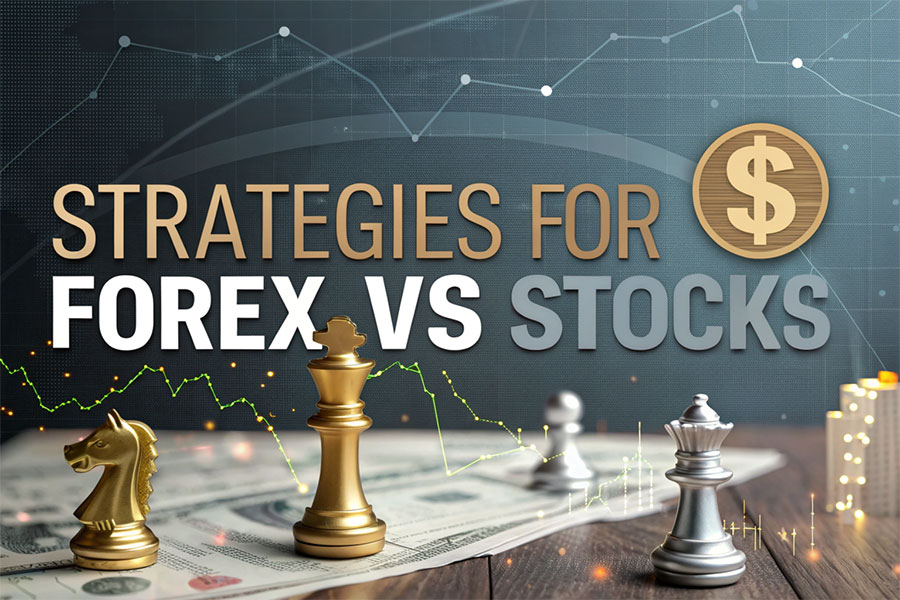
Developing robust trading strategies tailored to the specific characteristics of forex and stock markets can significantly enhance your trading performance. Each market demands unique approaches based on its dynamics, volatility, and influencing factors.
A refined strategy, aligned with your chosen market’s dynamics, can transform uncertainty into calculated opportunity.
Forex Strategies
- Day Trading and Scalping: These strategies involve making multiple trades within a single day to capitalize on small price movements. Scalping, in particular, focuses on very short-term trades, often lasting just minutes, to accumulate small profits that add up over time. This approach leverages the high liquidity and tight spreads of the forex market, allowing traders to execute rapid trades efficiently.
- Carry Trading: This strategy involves borrowing in a currency with a low-interest rate and investing in a currency with a higher interest rate. The goal is to profit from the interest rate differential between the two currencies. Carry trading can be particularly profitable in stable economic environments where interest rate differentials are significant.
- Trend Following: Traders employing this strategy seek to identify and follow sustained price movements in currency pairs. By riding the trend, whether upward or downward, traders aim to capture extended gains over a more extended period. Trend following relies heavily on technical analysis tools and indicators to identify and confirm trend direction.
Stock Strategies
- Value Investing: This long-term strategy involves identifying undervalued stocks that are trading below their intrinsic value. Value investors believe that the market will eventually recognize the stock’s true worth, leading to price appreciation. This approach requires thorough fundamental analysis to assess a company’s financial health, earnings potential, and growth prospects.
- Growth Investing: Focused on companies expected to grow at an above-average rate compared to others in the market, growth investing targets stocks with high earnings growth potential. These companies often reinvest profits into expanding operations, developing new products, or entering new markets, which can drive significant stock price appreciation over time.
- Swing Trading: Swing traders aim to capture short- to medium-term price movements by holding positions for several days to weeks. This strategy relies on technical analysis to identify price patterns and trends, allowing traders to enter and exit positions at optimal times to maximize profits. Swing trading can be applied to both individual stocks and stock indices.
Comparison Table: Forex vs Stocks
To provide a clear and concise comparison, the table below outlines the key aspects of forex and stock trading, helping you determine which market best suits your trading preferences and goals.
| Aspect | Forex Trading | Stock Trading |
| Market Size | Over $6 trillion daily trading volume | Varies by exchange and stock; major stocks highly liquid |
| Trading Hours | 24 hours a day, 5 days a week | Specific exchange hours; limited after-hours trading |
| Liquidity | Extremely high, minimal slippage | High for major stocks; lower for small-cap stocks |
| Volatility | High, driven by macroeconomic factors | Variable; high for individual stocks, lower for indices |
| Asset Nature | Currency pairs, no ownership in assets | Ownership shares in companies, potential dividends |
| Costs and Fees | Primarily spreads; no commissions with many brokers | Commissions (often low or zero); potential additional fees |
| Leverage | Typically higher, increasing potential gains and risks | Lower leverage, reducing both potential gains and risks |
| Influencing Factors | Global economic indicators, geopolitical events | Company performance, industry trends, economic data |
| Accessibility | Requires understanding of global markets | Accessible through various platforms and brokers |
| Strategies | Day trading, scalping, carry trading, trend following | Value investing, growth investing, swing trading |
This table encapsulates the primary differences and similarities between forex and stock trading, providing a quick reference to aid in your decision-making process.
Who Thrives in Forex Trading?
Forex trading typically attracts those who revel in fast-paced, short-term speculation. Currency traders often rely on technical analysis, chart patterns, and macroeconomic indicators to identify trades. They thrive in environments defined by speed, flexibility, and continuous market action. If you’re the type who loves staying plugged into global news, actively manages positions, and can handle the emotional swings of highly leveraged trades, forex might be your home turf.
Who Excels in Stock Trading?
Stock trading, on the other hand, often suits investors who favor long-term growth, dividend income, or value investing. Company fundamentals, earnings potentials, and industry analyses shape these decisions. Stocks can also attract those who prefer a more regulated environment, clear reporting standards, and less 24/7 screen time. If you find comfort in thorough research, patient decision-making, and focusing on broader corporate narratives, stocks may suit your style better than the relentless hum of currency markets.
Pro Tips for Advanced Traders
For traders looking to elevate their game in the forex vs stocks landscape, implementing advanced strategies and techniques can provide a significant competitive edge. These pro tips are designed to enhance your trading proficiency, optimize your strategies, and maximize your profitability.
The path to mastery lies in constant learning, disciplined execution, and adapting to the market’s ever-changing currents.
Refine Your Edge
- Develop a Comprehensive Trading Plan: A well-defined trading plan outlines your trading goals, strategies, risk management rules, and evaluation criteria. It serves as a roadmap, guiding your trading decisions and helping you stay disciplined during volatile market conditions.
- Master Technical and Fundamental Analysis: Combine the insights from technical analysis (chart patterns, indicators, and price action) with fundamental analysis (economic indicators, company financials, and news events) to gain a holistic view of the market. This dual approach allows you to make more informed and balanced trading decisions.
- Leverage Proper Risk Management: Implementing effective risk management techniques is crucial for preserving your capital and ensuring long-term success. Use tools like trailing stops, diversify your portfolio, and never risk more than a small percentage of your trading capital on a single trade.
- Diversify Your Portfolio: Spread your investments across different asset classes, sectors, and geographical regions to minimize risk. Diversification can help mitigate the impact of adverse movements in any single market or asset, enhancing the stability of your overall portfolio.
- Stay Informed: Continuously monitor economic news, market developments, and industry trends. Staying informed enables you to anticipate market movements, adjust your strategies accordingly, and capitalize on emerging opportunities.
- Utilize Advanced Trading Platforms: Invest in robust trading platforms that offer advanced charting tools, real-time data, automated trading capabilities, and seamless execution. Leveraging technology can enhance your trading efficiency and provide valuable insights into market behavior.
- Engage in Continuous Learning: The financial markets are constantly evolving, and staying ahead requires ongoing education. Attend webinars, participate in trading forums, read financial literature, and seek mentorship from experienced traders to refine your skills and stay updated with the latest strategies.
Opofinance Services
When planning to trade forex or stocks, partnering with a reliable broker can significantly enhance your trading experience. Opofinance, an ASIC-regulated broker, stands out as a premier choice for traders seeking safety, convenience, and advanced trading tools. Featured on the MT5 brokers list, Opofinance offers a suite of services tailored to meet the needs of both novice and experienced traders.

Choosing the right partner can revolutionize your trading experience, offering cutting-edge tools and unwavering security.
Why Choose Opofinance?
- ASIC Regulated Broker: Ensures compliance with stringent international standards, providing a secure and trustworthy trading environment.
- Safe and Convenient Deposits and Withdrawals: Multiple payment methods facilitate easy and secure transactions, allowing you to focus on trading without financial hassles.
- Social Trading Services: Enables you to follow and copy the strategies of successful traders, accelerating your learning curve and enhancing your trading performance.
- MT5 Platform Integration: Access to the world-renowned MetaTrader 5 platform offers a feature-rich environment with advanced charting tools, automated trading capabilities, and real-time market data.
- Exclusive Educational Resources: Comprehensive educational materials and prompt customer support help you build confidence and improve your trading skills.
Open your account with Opofinance now to experience a seamless, secure, and empowering trading environment.
Conclusion
Choosing between forex and stock trading is a significant decision that hinges on your personal trading style, financial goals, and risk tolerance. Both markets offer unique advantages and challenges, each catering to different types of traders. If you thrive in a fast-paced, highly liquid environment with the flexibility to trade around the clock, forex trading might be your ideal choice. On the other hand, if you prefer investing in tangible assets with the potential for steady growth and dividends, stock trading could be more suitable.
Your choice should reflect your personal trading style, time commitments, risk tolerance, and financial goals.
Ultimately, success in trading—whether in forex or stocks—requires a solid understanding of the market dynamics, disciplined execution of strategies, and effective risk management. By aligning your trading approach with the characteristics of your chosen market, you can enhance your chances of achieving consistent profitability and long-term financial success.
Key Takeaways
- Forex offers a massive, highly liquid market with 24-hour trading and macroeconomic-driven price movements.
- Stocks provide tangible ownership, regulated environments, and the comfort of familiar brands.
- Trading costs, volatility, and strategies differ, and understanding these nuances is crucial.
- A regulated forex broker and smart risk management can enhance your returns and reduce pitfalls.
- Aligning your choice—forex vs stocks—with your personality and objectives is the key to long-term success.
Can I effectively hedge my forex positions by trading specific stocks?
Yes, you can. By identifying a stock that is strongly correlated (positively or negatively) with a currency pair, you can use that stock to offset potential losses. For example, if you expect the U.S. dollar to weaken and you’re holding a long USD position, you might invest in a U.S. exporter’s stock likely to benefit from a weaker dollar, thereby balancing out potential losses.
How does economic data differ in terms of importance for forex vs stocks?
In the forex market, broad economic data—GDP growth, interest rate decisions, and inflation—often move currency pairs significantly. For stocks, while macro data matters, company-specific data such as earnings reports, product launches, and management guidance can have a more targeted impact on individual share prices. Thus, the type and focus of economic data differ based on where your trades lie.
Are there certain times of year that favor either forex or stock trading?
Seasonal trends exist. For instance, stock markets might experience reduced liquidity around holidays or tax seasons, potentially impacting volatility. The forex market, meanwhile, may see activity spikes around key central bank meetings or the start of the calendar year when major policy shifts occur. Timing your trades around known seasonal patterns—holiday lulls in stocks or early-year currency alignments—can give you an additional edge.



